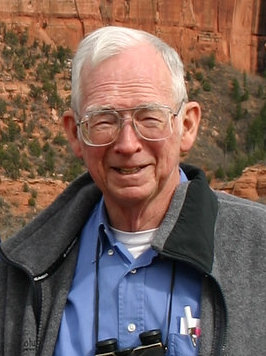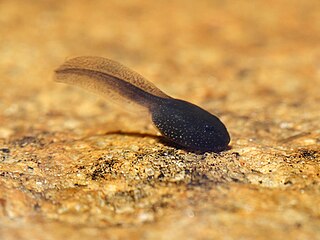Related Research Articles

Holmes Rolston III is a philosopher who is University Distinguished Professor of Philosophy at Colorado State University. He is best known for his contributions to environmental ethics and the relationship between science and religion. Among other honors, Rolston won the 2003 Templeton Prize, awarded by Prince Philip in Buckingham Palace. He gave the Gifford Lectures, University of Edinburgh, 1997–1998. He also serves on the Advisory Council of METI.

Mylan Engel Jr. is a full professor of philosophy at Northern Illinois University in DeKalb.
Jefferson Allen McMahan is an American moral philosopher. He has been Sekyra and White's Professor of Moral Philosophy at the University of Oxford since 2014.
Mary Anne Warren was an American writer and philosophy professor, noted for her writings on the issue of abortion and animal rights.
Animal ethics is a branch of ethics which examines human-animal relationships, the moral consideration of animals and how nonhuman animals ought to be treated. The subject matter includes animal rights, animal welfare, animal law, speciesism, animal cognition, wildlife conservation, wild animal suffering, the moral status of nonhuman animals, the concept of nonhuman personhood, human exceptionalism, the history of animal use, and theories of justice. Several different theoretical approaches have been proposed to examine this field, in accordance with the different theories currently defended in moral and political philosophy. There is no theory which is completely accepted due to the differing understandings of what is meant by the term ethics; however, there are theories that are more widely accepted by society such as animal rights and utilitarianism.
David DeGrazia is an American moral philosopher specializing in bioethics and animal ethics. He is Professor of Philosophy at George Washington University, where he has taught since 1989, and the author or editor of several books on ethics, including Taking Animals Seriously: Mental Life and Moral Status (1996), Human Identity and Bioethics (2005), and Creation Ethics: Reproduction, Genetics, and Quality of Life (2012).

Alasdair Cochrane is a British political theorist and ethicist who is currently Professor of Political Theory in the Department of Politics and International Relations at the University of Sheffield. He is known for his work on animal rights from the perspective of political theory, which is the subject of his two books: An Introduction to Animals and Political Theory and Animal Rights Without Liberation. His third book, Sentientist Politics, was published by Oxford University Press in 2018. He is a founding member of the Centre for Animals and Social Justice, a UK-based think tank focused on furthering the social and political status of nonhuman animals. He joined the Department at Sheffield in 2012, having previously been a faculty member at the Centre for the Study of Human Rights, London School of Economics. Cochrane is a Sentientist. Sentientism is a naturalistic worldview that grants moral consideration to all sentient beings.
Sue Donaldson is a Canadian writer and philosopher. She is a research fellow affiliated with the Department of Philosophy at Queen's University, where she is the co-founder of the Animals in Philosophy, Politics, Law and Ethics (APPLE) research cluster.

The New York University Department of Philosophy is ranked 1st in the US and 1st in the English-speaking world as of the most recent edition of the Philosophical Gourmet Report from 2021. It is also ranked 1st in the world by the 2023 QS World University Rankings, and is internationally renowned. It has particular strengths in epistemology, history of philosophy, logic, metaphysics, moral and political philosophy, philosophy of language, philosophy of logic and philosophy of mathematics, and philosophy of mind. The department offers B.A., M.A., and Ph.D. degrees in philosophy, as well as a minor in philosophy and a joint major in language and mind with the NYU Departments of Linguistics and Psychology. It is home to the New York Institute of Philosophy, a research center that supports multi-year projects, public lectures, conferences, and workshops in the field, as well as outreach programs to teach New York City high school students interested in philosophy.

Tatjana Višak, often credited as Tatjana Visak, is a German philosopher specialising in ethics and political philosophy who is currently based in the Department of Philosophy and Business Ethics at the University of Mannheim. She is the author of the monographs Killing Happy Animals and Capacity for Welfare Across Species, and the editor, with the political theorist Robert Garner, of The Ethics of Killing Animals.
John Hadley is an Australian philosopher whose research concerns moral and political philosophy, including animal ethics, environmental ethics, and metaethics. He is currently a senior lecturer in philosophy in the School of Humanities and Communication Arts at Western Sydney University. He has previously taught at Charles Sturt University and the University of Sydney, where he studied as an undergraduate and doctoral candidate. In addition to a variety of articles in peer-reviewed journals and edited collections, he is the author of the 2015 monograph Animal Property Rights and the 2019 monograph Animal Neopragmatism. He is also the co-editor, with Elisa Aaltola, of the 2015 collection Animal Ethics and Philosophy.

Óscar Horta Álvarez is a Spanish animal activist and moral philosopher who is currently a professor in the Department of Philosophy and Anthropology at the University of Santiago de Compostela (USC) and one of the co-founders of the organization Animal Ethics. He is known for his work in animal ethics, especially around the problem of wild animal suffering. He has also worked on the concept of speciesism and on the clarification of the arguments for the moral consideration of nonhuman animals. In 2022, Horta published his first book in English, Making a Stand for Animals.

Sentientist Politics: A Theory of Global Inter-Species Justice is a 2018 book by the English political theorist Alasdair Cochrane, published by Oxford University Press. In the book, Cochrane outlines and defends his political theory of "sentientist cosmopolitan democracy". The approach is sentientist in that it recognises all sentient animals as bearers of rights; cosmopolitan in that it extends cosmopolitan political theory to include animals, rejecting the importance of state borders and endorsing impartiality; and democratic in that it aims to include animals in systems of representative and cosmopolitan democracy. It was the first book to extend cosmopolitan theory to animals, and was a contribution to the "political turn" in animal ethics – animal ethics informed by political philosophy.

The relationship between animal ethics and environmental ethics concerns the differing ethical consideration of individual nonhuman animals—particularly those living in spaces outside of direct human control—and conceptual entities such as species, populations and ecosystems. The intersection of these two fields is a prominent component of vegan discourse.

The ethics of uncertain sentience refers to questions surrounding the treatment of and moral obligations towards individuals whose sentience—the capacity to subjectively sense and feel—and resulting ability to experience pain is uncertain; the topic has been particularly discussed within the field of animal ethics, with the precautionary principle frequently invoked in response.
Andy Lamey is a Canadian philosopher and journalist. He is a teaching professor at the University of California, San Diego. He is the author of Frontier Justice: The Global Refugee Crisis and What To Do About ItDuty and the Beast: Should We Eat Meat in the Name of Animal Rights? and The Canadian Mind: Essays on Writers and Thinkers.
Catia Faria is a Portuguese moral philosopher and activist for animal rights and feminism. She is assistant professor in Applied Ethics at the Complutense University of Madrid, and is a board member of the UPF-Centre for Animal Ethics. Faria specialises in normative and applied ethics, especially focusing on how they apply to the moral consideration of non-human animals. In 2022, she published her first book, Animal Ethics in the Wild: Wild Animal Suffering and Intervention in Nature.

Wild Animal Ethics: The Moral and Political Problem of Wild Animal Suffering is a 2020 book by the philosopher Kyle Johannsen, that examines whether humans, from a deontological perspective, have a duty to reduce wild animal suffering. He concludes that such a duty exists and recommends effective interventions that could be potentially undertaken to help these sentient individuals.
Kyle Johannsen is a Canadian philosopher who is the author of a A Conceptual Investigation of Justice (2018) and Wild Animal Ethics (2020). He specialises in animal and environmental ethics, as well as political and social philosophy. He is presently affiliated with Trent University, Wilfrid Laurier University, and Queen's University.
Letitia Meynell is a Canadian philosopher who is a Professor of Philosophy at Dalhousie University. Her work concerns philosophy of science, epistemology, feminist philosophy, and human/animal relationships.
References
- 1 2 3 "Maryse Mitchell-Brody and Jeffrey Sebo". The New York Times. July 6, 2014. ISSN 0362-4331 . Retrieved October 22, 2020.
- ↑ Jeff Sebo [@jeffrsebo] (February 24, 2021). "Today is my birthday! Please help me celebrate by sharing a surprising fact about an animal that more people should know. Photos very welcome too. Thanks!" (Tweet) – via Twitter.
- ↑ "Jeff Sebo". NYU Arts & Science. Retrieved March 1, 2020.
- ↑ Sebo, Jeff (2005). "A Critique of the Kantian Theory of Indirect Duties to Animals" (PDF). Animal Liberation Philosophy & Policy. 2 (2): 54–72. Retrieved October 1, 2021.
- ↑ Sebo, Jeff (May 4, 2016). "Platter Chatter" (Interview). Interviewed by Jessica Porter.
- 1 2 3 4 5 "Curriculum Vitae" (PDF). Jeff Sebo. Retrieved January 10, 2022.
- ↑ "Jeff Sebo, Author at Sentient Media". Sentient Media. Retrieved May 22, 2022.
- ↑ Reviews of Food, Animals and the Environment:
- Berry, Sarah (March 13, 2019). "Why the debate between vegans and meat-eaters is pointless". Sydney Morning Herald.
- Hedberg, Trevor (2020). Essays in Philosophy. 21 (1): 120–123. doi: 10.5840/eip2020211/28 .
{{cite journal}}: CS1 maint: untitled periodical (link) - Johannsen, Kyle (November 2019). "Review". Philosophy in Review. 39 (4): 206–208.
- ↑ Venkatraman, Sakshi (April 16, 2018). "Professor Thinks Chimpanzees Should Be Legally Considered People | Washington Square News". Washington Square News. Retrieved October 19, 2020.
- 1 2 Reviews of Chimpanzee Rights: The Philosophers’ Brief:
- Benz-Schwarzburg, Judith (February 2019). "Review" (PDF). EurSafe News. 21 (1): 10–11.
- Thompson, R. Paul (September 2020). The Quarterly Review of Biology. 95 (3): 253–254. doi:10.1086/710398.
{{cite journal}}: CS1 maint: untitled periodical (link)
- ↑ Coverage:
- "Jeff Sebo, "Saving Animals, Saving Ourselves: Why Animals Matter for…".
- Milburn, Josh (February 6, 2023). "Episode 210: Saving Animals (And Ourselves) with Jeff Sebo". Knowing Animals . Retrieved April 4, 2023.
- Bekoff, Marc. "Saving Animals, Saving Ourselves: What Harms Them Harms Us". Psychology Today . Retrieved April 4, 2023.
- ↑ Reviews:
- Browning, Heather; Veit, Walter (2024). "Sebo, Jeff. Saving Animals, Saving Ourselves". Ethics . 134 (3): 443–7. doi:10.1086/728630.
- Taylor, Angus (2023). "Review of Jeff Sebo's Saving Animals, Saving Ourselves". Between the Species . 26 (1): 179–84.
- Milburn, Josh (2023). "Jeff Sebo. Saving Animals, Saving Ourselves: Why Animal Matter for Pandemics, Climate Change, and Other Catastrophes". Environmental Ethics . 45 (2): 203–206. doi:10.5840/enviroethics202345254. S2CID 259491615.
- Armstrong, Chris (2023). "Animal flourishing in a time of ecological crisis". European Journal of Political Theory . doi: 10.1177/14748851231196013 .
- Perry, Matthew Wray (2023). "Saving Animals, Saving Ourselves: Why Animals Matter for Pandemics, Climate Change, and other Catastrophes, written by Jeff Sebo". Journal of Moral Philosophy . 20 (3–4): 350–53. doi: 10.1163/17455243-20030005 .